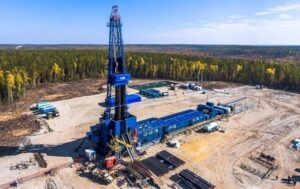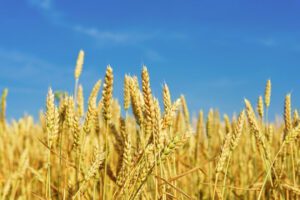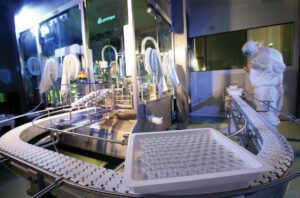
JSC Ukrgazvydobuvannia begins to use a new technology for Ukraine’s basin analysis and modeling of hydrocarbon systems for prospecting and exploration of hydrocarbons, the company’s communications department said.
“Basin modeling is another step towards reducing risks, primarily drilling. Thanks to this technology, we will be able to improve the accuracy of risk assessment both for individual promising objects and for large geological structures in order to increase the resource base and production of Naftogaz,” Director of the Naftogaz Exploration and Production Division Oleksandr Romaniuk said, whose words are quoted in a press release on Thursday.
The company explained that based on the analysis of spatial dynamic 4D models of hydrocarbon systems, the company will predict risks, calculate the cost of projects and make decisions on production plans, in particular, drilling new wells.
The company plans to use basin analysis to assess the oil and gas potential of the Black Sea areas, prospect for hydrocarbons in the Carpathian fold belt and additional exploration of licensed areas in the Dnipro-Donetsk basin, the report says.
In UkrNDIGas, a research division of Naftogaz, the new direction is headed by Felipe Rodriguez, who has over 20 years of experience in the basin analysis industry and has worked on the development of oil and gas deposits in a number of countries, in particular, in BP, Repsol and Cepsa companies.
As the company said, the technology of basin modeling is actively used by the leading international oil and gas companies ExxonMobil, Shell, BP for forecasting and planning exploration and development processes.

Production of tractor, mounted and trailed mowers in Ukraine decreased 83.3% over 2017-2020 – from 3,590 items to 600 items, while their imports (excluding imports from China) tripled – from 1,430 items to 4,240 items, the current trend threatens to completely oust this domestic equipment from the Ukrainian market. This was announced by the national research center Institute of Agrarian Economics on the website on Thursday.
According to the institution, in 2017, production of mowers in Ukraine amounted to 3,590 items, in 2018 – 1,550 items, in 2019 – 1,110 items, in 2020 – 600 items, and in the first half of 2021 – 250 items.
At the same time, imports of this equipment to Ukraine (excluding imports from China) amounted to 1,430 items in 2017, some 1,550 items in 2018, some 3,530 items in 2019, and in 2020 – 4,240 items, while in the first half of 2021, some 3,190 items were imported.
Thus, in the first half of the year, the share of mowers produced in Ukraine was 7.2% in the Ukrainian market of this equipment, while in 2017 it was 10 times higher – 71.6%. The institute clarified that this statistics does not take into account data on mowers imported from China, given which the decrease in the share of Ukrainian equipment in the market may turn out to be even more significant.
“The current situation testifies to the gradual abandonment of domestic mowers in favor of foreign ones, a wide range of which allows an agricultural enterprise to choose equipment in accordance with its own capabilities and needs,” Institute of Agrarian Economics researcher Yaroslav Navrotsky is quoted in the report.
The researcher emphasized that in order to reduce the growing dependence on imports of machinery in general and mowers in particular, Ukraine needs to create favorable conditions for attracting foreign investors, as well as to establish production of world-class mowers in Ukraine by organizing joint ventures.
As reported, in January-July 2021, farmers received UAH 546 million from the state budget under the program of partial compensation for the cost of domestic agricultural machinery and equipment.

Electricity production in the integrated power system of Ukraine in January-August 2021 increased by 6.4% (by 6.163 billion kWh) compared to the same period in 2020, to 102.559 billion kWh, according to recent data from the Energy Ministry.
According to the calculations of Interfax-Ukraine, nuclear power plants (NPP) for the eight months increased the generation of electricity by 8.1% – up to 55.279 billion kWh. In particular, production at Zaporizhia NPP amounted to 22.938 billion kWh (more by 27.4% compared to January-August 2020), Yuzhnoukrainsk NPP – 11.990 billion kWh (less by 0.4%), Rivne NPP – 12.988 billion kWh (less by 0.1%), Khmelnytsky NPP – 7.363 billion kWh (less by 8.9%).
Thermal power plants (TPP), as well as combined heat and power plants (CHPP) and cogeneration plants reduced their output by 3.4% – to 30.149 billion kWh. In particular, the generating companies of TPPs increased production by 3.7% – up to 23.922 billion kWh, while CHPPs and cogeneration plants – decreased by 23.6%, to 6.227 billion kWh.
Hydro power and pumped storage power plants increased production by 50.2%, to 7.539 billion kWh, while block stations decreased by 13.3%, to 1.099 billion kWh.
Electricity production by unconventional sources (wind farms, solar power plants, biomass) increased by 9.6%, to 8.493 billion kWh.
The share of nuclear power plants in the structure of electricity production amounted to 53.9% (in January-August 2020 – 53%), thermal power plants, thermal power plants, CHPPs and cogeneration plants – 29.4% (32.4%), hydroelectric power plants and pumped storage power plants – 7.4% (5.2%), block stations – 1.1% (1.3%), alternative sources – 8.3% (8%).
In August 2021, electricity production in the integrated power system of Ukraine increased by 6.7% (by 761.7 million kWh) compared to the same month last year, to 12.16 billion kWh.
In addition, the supply of heat energy for the eight months increased by 11.8% (by 1.511 million Gcal) compared to the same period last year, to 14.273 million Gcal.

In its September report, the U.S. Department of Agriculture (USDA) kept the forecast for the production of Ukrainian wheat in the 2021/22 year (July-June) at 33 million tonnes, and its exports at 23.5 million tonnes, which is in line with the Department’s forecast published in August. In the September report, the USDA also kept the forecast for the corn harvest in 2021/22 at 39 million tonnes, and its exports from Ukraine at 32 million tonnes.
As reported, from the beginning of 2021/22 and as of September 10, 2021, Ukraine exported 10.29 million tonnes of grains and legumes, which is 12% more than on the same date of the previous year. Some 5.92 million tonnes of wheat were exported (4.1% less than on the same date 2020/21), 2.99 million tonnes of barley (a rise of 24.7%), 1.34 million tonnes of corn (2.2 times up); 24,700 tonnes of flour (33.7% less).

Coal mining enterprises of Ukraine in January-August 2021 increased production of run-of-mine coal by 6.2% (by 1.154 million tonnes) compared to the same period in 2020, to 19.681 million tonnes, according to data from the Ministry of Energy.
According to the calculations of Interfax-Ukraine, in particular, coal mining enterprises managed by the ministry increased production by 2.2 times over the eight months of this year (by 2.223 million tonnes), to 4.021 million tonnes, which is largely due to the return of Dobropilliavuhillia assets from DTEK’s lease.
The mines of Donetsk region over the eight months of this year ensured production of 8.129 million tonnes of coal (more by 21.4% compared to January-August 2020), Luhansk – 176,700 tonnes (more by 33.6%), Dnipropetrovsk – 10.506 million tonnes (less by 2.9%), Lviv – 858,100 tonnes (more by 1.1%), and Volyn – 11,000 tonnes (less by 57.6%).
In August 2021, production of run-of-mine coal in the country fell by 27.6% (by 770,200 tonnes) compared to the same month last year, to 2.016 million tonnes.

Domestic pharmaceutical manufacturers are negotiating to localize the production of influenza vaccines in Ukraine, the vaccine will be presented on the market in the first quarter of 2022, Deputy Minister of Health, Chief State Sanitary Doctor Ihor Kuzin said in an online interview with medical expert of the United Nations Children’s Fund (UNICEF) in Ukraine Kateryna Bulavinova.
“Ukrainian pharmaceutical manufacturers are negotiating to localize the production of influenza vaccines in Ukraine. It will be a tri- or quadrivalent vaccine in monodose syringes. We hope that such a vaccine will be available on the market during the first quarter of 2022,” he said.
Kuzin noted that it is also planned to purchase about 1 million doses of the vaccine.
“According to forecasts, we will have the same influenza epidemic season as last year. Since June we have been working with vaccine manufacturers and the pharmaceutical sector. Negotiations are underway to transfer a free vaccine to vaccinate health workers within the humanitarian aid framework. The amount of vaccine that will be supplied to the country for the pharmacy network will be slightly more than last year – about 1 million doses,” the deputy minister said.
INFLUENZA, PHARMACEUTICAL MANUFACTURERS, PRODUCTION, VACCINES